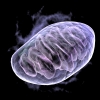The Efficacy of Traditional and Non-traditional Treatments on Seizures by Richard E. Frye, MD, PhD
To better understand the characteristics of seizures in individuals with autism spectrum disorder (ASD), we developed a 737-question online Web-based survey. The survey was designed to better understand the age of onset, gender ratio, associated medical conditions and types of seizures characteristic of seizures in individuals with ASD. In addition, we aimed to understand the relationship between seizures and developmental regression and the effect of traditional and non-traditional antiepileptic treatments on seizures, behavior and development in children with ASD and seizures. Each treatment was rated for effect on seizures, sleep, expressive and receptive language, verbal and nonverbal communication, stereotypic and repetitive behavior, rigidity, flexibility and adaptability, hyperactivity, attention and mood. In addition, the frequency of side effects was also queried. Over 500 individuals completed the survey advertised on the Autism Research Institute website. Overall, the gender ratio, associated medical conditions and proportion of children demonstrating regression was similar in the surveyed population as compared to general ASD population. The effect of traditional and non-traditional treatment could be divided into six categories: treatments used too infrequently; treatments with no effect on seizures, behavior or development (Gabapentin, Ethosuximide, L-Carnitine, Acetyl-L-carnitine); treatments with a negative effect on behavior and/or development (Phenytoin, Phenobarbital, Levetiracetam, Felbamate, Topiramate, Carbamazepine); treatments with a positive effect on seizures but no effect on behavior and/or development (Valproic Acid, Oxcarbazepine, Zonisamide, steroids); treatments with a positive effect on seizures, behavior and development (Clonazepam, Lamotrigine, ketogenic diet, vagus nerve stimulator, pyridoxine, P-5-P, coenzyme Q10, ubiquinone, ubiquinol, vitamin B-12/cyanocobalamin, magnesium, gluten-free/casein-free diet, Specific Carbohydrate Diet, hyperbaric oxygen therapy, glutathione, taurine, GABA); and, treatments with no effect on seizures, but a positive effect on behavior and development (5-HTP, carnosine, chelation, DMG). Further data is being collected using an expanded version of the survey which includes questions regarding sensitivity to sensory stimuli. In addition, a survey is also being developed to collect data from a control group of individuals with ASD but without seizures. Further data will help better define the efficacy of traditional and non-traditional treatments for seizures in individuals with ASD.
Richard E. Frye, MD, PhD received his MD and PhD from Georgetown University. He completed his pediatric residency training at University of Miami and child neurology residency training at Children's Hospital Boston. Following residency Dr. Frye completed a fellowship in behavioral neurology and learning disabilities at Children's Hospital Boston. Dr. Frye is also funded by the National Institutes of Health to study brain function in individuals with dyslexia and is the medical director of the University of Texas medically-based autism clinic.















